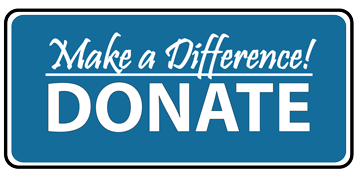Ann Arbor (Informed Comment) – The United Arab Emirates, the fabulously wealthy set of oil states at the head of the Gulf, has frozen its $23 billion deal to buy advanced stealth F-35 fighter-jets and unmanned drones from the United States. The Abu Dhabi local press delicately explained that the freeze was for “technical reasons.”
Mostafa Salem, Jennifer Hansler and Celine Alkhaldi at CNN, however, reveal that that the Emirates backed off the purchase because the Biden administration was giving them too much grief about their growing relationship with China. It wasn’t a relationship the Emirates were willing to sacrifice.

The immediate catalyst was the American allegation that the Chinese were allowed to build a military base in the UAE. According to CNN, the allegations were denied by Anwar Gargash, former minister of state for foreign affairs and current diplomatic advisor to UAE President Sheikh Khalifa bin Zayed Al Nahyan. He said that the UAE did not believe China was using the buildings for military purposes, but had closed down the facility anyway.
Washington is touchy about China’s growing naval presence. It will soon have three aircraft carrier battle groups, and has a base at Djibouti on the Red Sea.
The US has also long pressured the Emirates not to use the Chinese telecom firm Huawei, which Washington believes builds back doors into its 5G network allowing Chinese intelligence to engage in cyber-spying. The UAE has defied Washington in this regard, however, and seems intent on going full bore ahead with Huawei.
In an op-ed for China Daily, Ali Obaid Al Dhaheri, the UAE ambassador to Beijing, points out that the UAE has gone in the past 50 years from having an annual gross domestic product of $11 billion to having a GDP of $421 billion.
The current bilateral trade of the UAE and China is $50 billion annually, but Abu Dhabi wants to up that to $200 billion over the next decade. The ambassador boasts of the way that the Emirates has signed on to China’s vast pan-Asian infrastructure project, One Belt, One Road. The US, Japan, the Philippines and Indonesia have been trying to propose an alternative, fearing that all roads will lead to Beijing if 1BR is successful.

Personal checks should be made out to Juan Cole and sent to me at:
Juan Cole
P. O. Box 4218,
Ann Arbor, MI 48104-2548
USA
(Remember, make the checks out to “Juan Cole” or they can’t be cashed)
The UAE has also thrown the US “maximum pressure” campaign on Iran onto the trash heap, and is doing over $20 billion a year in trade with Tehran this year, exceeding the volume before Trump slapped his financial and trade embargo on Iran.
In short, the UAE was willing to sign the Abraham Accords with Israel to reassure the Israel lobbies in Washington that it could be trusted with high tech weaponry and wouldn’t turn it over to Hamas. The UAE also got access to Israeli capital and the prospect of Israeli technology transfer. So the $28 billion in advanced weaponry that Trump offered to Abu Dhabi, and which the Biden administration is perfectly happy to continue with, was a nice tip to the UAE for signing the accords. But the real ruler of the UAE, Mohammed Bin Zayed, did not think he was joining NATO or anything. He has lots of irons in the fire, and doesn’t want to give up his national independence.
I’m just speculating here, but if it is true that Huawei abets Chinese cyber-espionage, the Israeli tech firms being set up in Dubai could well prove leaky. And maybe the UAE, which has been at the forefront of hacking and cyber-espionage, will get a cut. We thought the Abraham Accords were a fig leaf for a big arms deal. But maybe it was the technological equivalent of a honey trap. The eagerness of Trump to dump the most sophisticated US weaponry on an actor like the UAE, which also has ties to Russia, was always questionable.
In the meantime, the UAE is the fifth largest arms purchaser in the world and has a deal with France for 80 advanced Rafale fighter jets. If the price of the F-35 is to further alienate China and risk plans for an expansion of trade with that country to $200 billion a year (half the UAE’s current GDP!), then, well, as the French would say, tant pis. Too bad.



 © 2025 All Rights Reserved
© 2025 All Rights Reserved